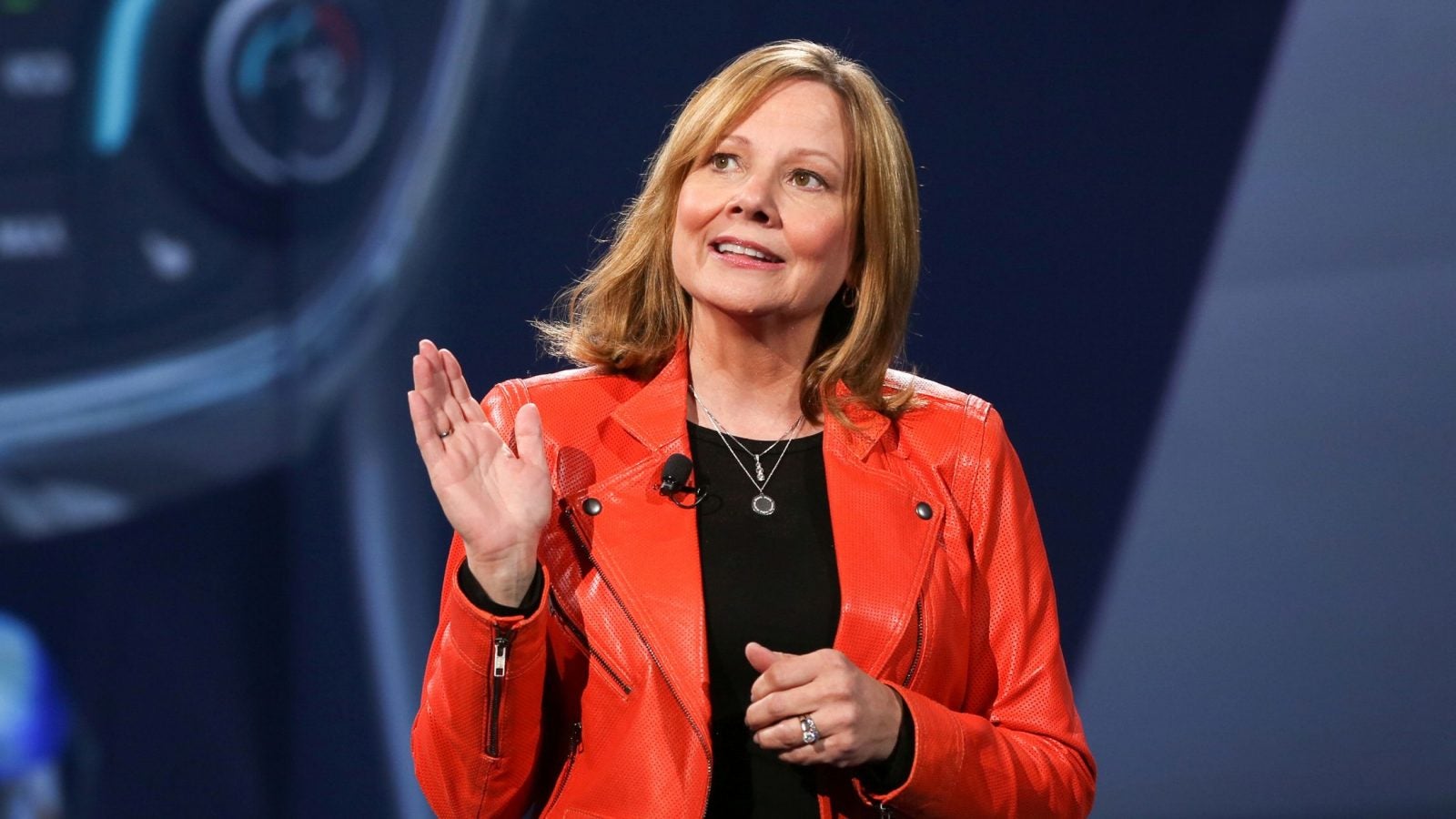Mary Barra’s unexpected advice to people who want a deeply influential mentor
I need a mentor, you need a mentor, we all need a mentor. If you haven’t internalized this message, download any management text written in the past decade.


I need a mentor, you need a mentor, we all need a mentor. If you haven’t internalized this message, download any management text written in the past decade.
Easy as it is to preach the merits of mentorship, it’s hard to find a good mentor. Especially if you’re a woman in a male-dominated field. GM CEO Mary Barra, one of the most powerful women in business, offers some straight-forward advice for anyone looking to learn how to learn more.
Where not to start
It’s tempting to see the most powerful person in the organization as the best potential mentor. On paper (or LinkedIn), that person is usually the chief executive. Who better understands success than she who makes the biggest decisions, is paid the most, and beat out enough competition to lead the entire company?
Generalizing as this logic may be, it’s exceedingly common, especially in organizations led by approachable, former-HR executives like Barra. She recently discussed mentorship requests on Women@Work, a Wharton Business School Sirius XM show.
Having risen from factory-floor worker to chief executive, Barra’s leadership at GM is rooted in awareness of each department’s intricacies and importance. Throughout her nearly four decades, she’s seen enough success and turmoil to understand what effective—and poor—mentorship looks like. And as the first female CEO of a Big Three US automaker, she speaks openly about the importance of male executives investing in junior women’s careers, citing the invaluable mentors she’s had throughout her career—many of them men who steered her toward opportunities she wouldn’t otherwise have considered.
Begin in your own workspace
Barra says she’s lucky to hear from GM employees at all levels, almost daily. Many of the emails she receives express excitement about the company, or constructive feedback, and mentorship requests are common. On the Wharton show, Barra explains why she always responds with an important caveat.
“There are mentors in the workspace all around you—peers, the seasoned professional, your supervisor, the supervisor one desk over,” Barra told hosts Adam Grant and Laura Zarrow. “People often reach out [to me] saying, ‘Will you be my mentor?’ And I say, ‘Let’s talk about that, because the better person to be your mentor in the organization is someone who sees you every day, someone who knows you at your best, and someone who can give you opportunities to improve.’ So I always redirect them: Find mentors in the people around you who you respect.”
Barra says you don’t need one definitive mentor. “Mentorship can be, I’m talking to this person today, and that person tomorrow,” she says. ”You can also learn a lot from the people you don’t respect. If you look around you and you say, ‘OK, this is not the kind of leader I want to be,’ then ask yourself, ‘What is that leader doing that you want to make sure you don’t repeat?'”
People who know you best can help the most
Tempting as it may be to find the highest-status, most-connected mentor, effective advice has to be rooted in your individual personality, strengths and weaknesses, and aspirations. These nuances are best noted by the people you work with every day, and can be easily misunderstood by those who don’t know you well. When Grant asked Barra what mistaken career advice women receive, her response was simple:
“What I worry about is when you’re given feedback that is not [tailored to] you; the best advice is to be yourself,” she said. “I was given feedback earlier in my career that I need to speak up in meetings—but I didn’t need to start sounding like someone else, I still had to be me. Advice that pulls someone too far from what they’re really like isn’t helpful.”
For women, searching for a mentor can be even more complex. Research shows that women are punished for self-advocacy at work. The more assertive they are about their own career development, the more they’re seen as bossy, power-hungry, or simply unqualified.
These biases make it all the more essential for professionals of all levels to actively encourage women to seek mentorship, and to make themselves available as advice-givers. As Harvard Kennedy School lecturer Hannah Riley Boles explains in Harvard Business Review, “Research also shows that women perform better…when their role is to advocate for others as opposed to negotiating for more for themselves.” Men are unaffected whether they’re advocating for themselves or others, she notes.
You can listen to Barra’s full interview on Women@Work here.
This story is part of How We’ll Win, a project exploring the fight for gender equality at work.